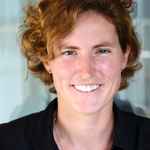Study programme
Programme overview
The Literary Studies Research Master's programme is anchored in the three core courses, all of which you take in the first three semesters. These core courses introduce you to the two chief orientations that guide research at the faculty: literary theory and cultural history. In addition to the core courses, you will choose an elective and a tutorial each semester. These offer you in-depth knowledge and (methodological) skills in the topics that fascinate you. In the final semester, you will write your thesis and develop a complementary research project.
-
Key Debates in Literary and Cultural StudiesPeriod 1Period 212
-
Literature, Context, HistoricityPeriod 4Period 512
-
Restricted-choice electives: Tutorials and Research School ActivitiesPeriod 1Period 2Period 3Period 4Period 5Period 612
-
Free-choice electivesPeriod 1Period 2Period 4Period 524
-
Literary Studies LabPeriod 1Period 212
-
Research Project Literary StudiesPeriod 4Period 512
-
Free-choice electives: Tutorials and Research School ActivitiesPeriod 1Period 2Period 3Period 4Period 5Period 612
-
Free-choice electivesPeriod 1Period 2Period 4Period 56
-
Research Master's Thesis Literary StudiesPeriod 4Period 5Period 618
-
Core courses
In the first three semesters, you will be taking three core courses. In Key Debates in Literary and Cultural Studies, you become familiar with the current debates and methodologies in literary studies. In the second semester, you will take the course in Literature, Context, Historicity and focus on what the workings of literature actually does in social, cultural and historical terms. Finally, in the Literary Studies Lab in your second year, you will focus on what it means to conduct the practice of high-level academic research. In this course, you work on your research topic with fellow students and a Faculty member, helping you to prepare for the thesis that you will write in the final semester and learn how to write a PhD proposal.
-
Electives
The programme offers ample space for electives and encourages you to take courses that best suit your research interests. We have over 50 electives in Dutch, English, French, German, Italian, Spanish, Scandinavian and Slavonic literatures, as well as Comparative literature. Interdisciplinary electives deal with topics like globalisation, cultural memory, gender and the post-human.
-
Tutorials
In the tutorials you work closely with one of our Faculty members and a small group of students on a topic, method or field that interests you. Some tutorials are offered in the study guide, but you may also create your own. In the tutorial space, you also take seminars at one of the national research schools, where you’ll meet Research Master's students, PhDs and researchers from other universities in the Netherlands and abroad.
-
Thesis
The Master's thesis reports on research carried out under the supervision of an academic staff member involved in the programme. In addition, you complete a research project related to the topic of your thesis.
-
Internship
You can also opt to do an internship. This may involve taking part in ongoing research at the faculty or a research-oriented internship at a cultural or literary institution like a museum or publishing house.

Literary Studies allows us to make visible what is at stake philosophically and politically in cultural expressions like literature, film, new media, visual art or popular culture. It asks questions about the ways in which people give shape to meaning, and thus how knowledge about contemporary culture is produced.Dr Hanneke Stuit
-
How many students does this programme have?
We have between 15-20 students each year.
-
How many of the students pursue an academic career after graduation?
About one quarter of our graduates obtain admission to funded PhD programmes, recently including positions at the University of Warwick, UC Santa Barbara, Cambridge University, University of Giessen and Radboud University (Nijmegen).